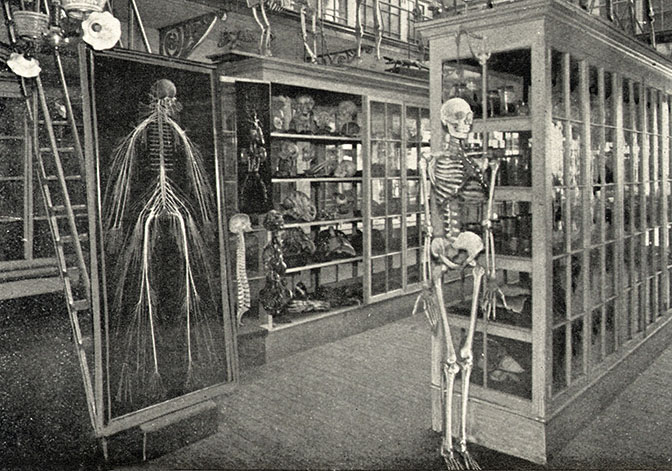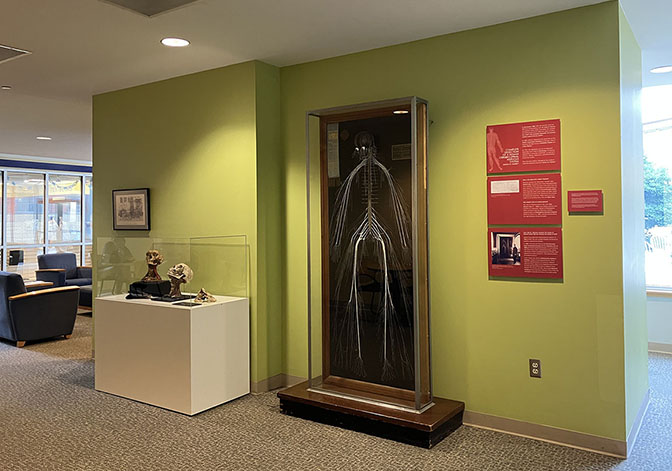Historical Human Remains
University statement on the Complete human cerebrospinal nervous system dissection (known as "Harriet")
 Hahnemann Medical College anatomical museum, 1893.
Hahnemann Medical College anatomical museum, 1893.
 Anatomical preparations exhibit at the Queen Lane campus, 2022.
Anatomical preparations exhibit at the Queen Lane campus, 2022.
Drexel University College of Medicine’s archival collections includes a complete dissection of the human cerebrospinal nervous system, which was created by anatomist Dr. Rufus B. Weaver in 1888. At the time, this specimen was recognized as an important teaching tool in the field of Neurology, and over the next century, it became known as “Harriet” throughout the medical world.
An 1888 death certificate suggests that the dissection was named after Harriet Cole, a Black woman whose unclaimed body was delivered to Hahnemann Medical College.
There are very little facts known about Harriet Cole. A century’s worth of unconfirmable stories continue to complicate the understanding of the “Harriet” specimen’s origin.
In 2018, The Drexel Legacy Center began ongoing efforts to clarify the facts about “Harriet.” The work continues today and has expanded to include the College of Medicine’s Office of Diversity, Equity and Inclusion, the Office of Educational Affairs, as well as faculty, professional staff and students. The specimen provides an important opportunity for the discussion of ethics, health care and consent, and the exploration of how social practices change over time.
We understand that it is our responsibility to uncover why gaps and erasures in history may exist. The College of Medicine strives to address and invite conversations to recognize the influence of the past on medical education and its impact on the practice of health care today. Please feel free to contact The Drexel Legacy Center at: com_archives@drexel.edu